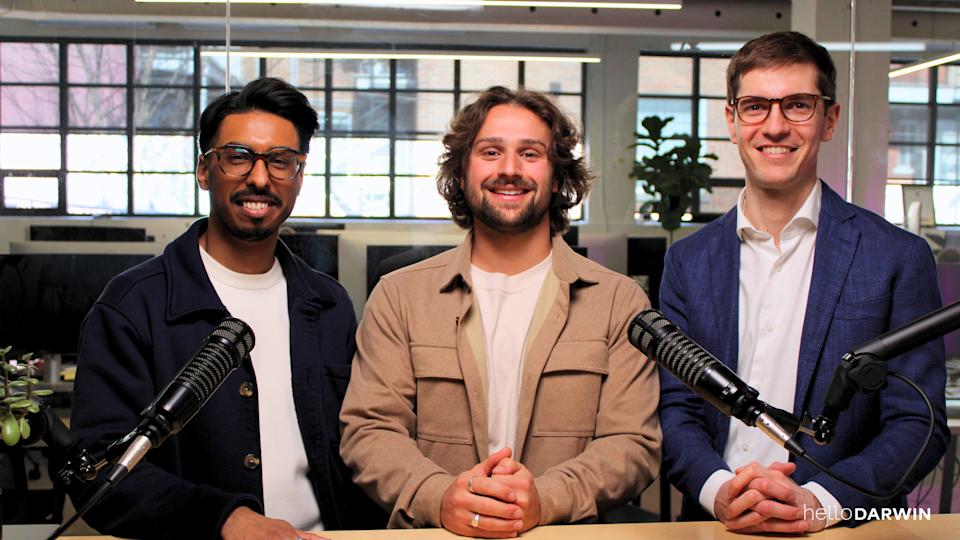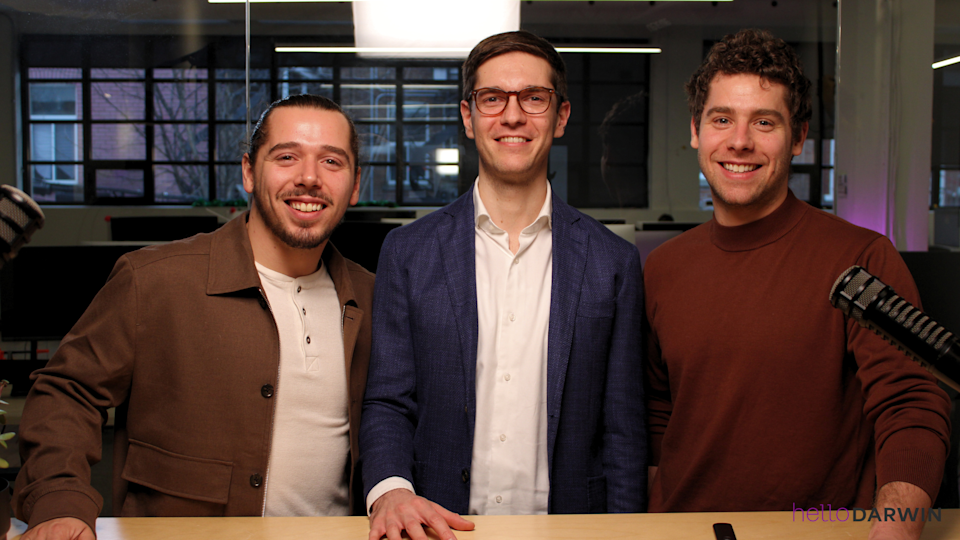Tax Credits & Grants : Essential Tools for your Innovation Projects
Innovation is the cornerstone of business growth and competitiveness, serving as the driving force behind transformative ideas and groundbreaking solutions. However, funding innovative projects often presents significant challenges, from navigating complex funding criteria to identifying the most suitable financial programs. In this article, we delve into a comprehensive overview of insights shared during a recent webinar. Hosted by Vincent Desrochers of helloDarwin, the session featured expert contributions from Mike Lee of R&D Partners and Francis Desrochers, shedding light on the array of grants and tax credits available to support businesses in their journey toward innovation. By exploring these opportunities, businesses can better understand how to bridge financial gaps and unlock their full potential, ensuring that their innovation initiatives lead to sustainable growth and competitive advantage in the market.
What Is Innovation?
Innovation isn’t just about new ideas; it’s about transforming those ideas into groundbreaking solutions that redefine industries and create tangible impacts. Most programs define innovation as activities centered on research and development (R&D), experimentation, and solving complex technical problems that push the boundaries of current knowledge. This process often involves trial and error, exploring uncharted territories, and making breakthroughs that pave the way for new technologies and methodologies. Examples include:
Developing new prototypes or processes that address unmet needs
Researching new materials or technologies to enhance performance or sustainability
Advanced software development involving significant uncertainty and complex algorithms
Such innovative activities are often associated with high levels of technical risk and require dedicated resources to manage. They contrast sharply with non-innovative projects—such as routine marketing efforts, minor upgrades, or purely aesthetic improvements—which typically do not meet the criteria for funding under innovation programs. Additionally, innovation often involves collaboration across multiple disciplines, integrating expertise from diverse fields to solve intricate challenges, making it a dynamic and transformative process.
Key Tax Credits for Innovation
CDAE (Crédit d’Impôt pour le Développement des Affaires Électroniques)
Designed for businesses operating in the information technology (IT) sector, this Quebec tax credit promotes the development of advanced business solutions by subsidizing up to 30% of eligible salaries. It particularly supports companies engaging skilled personnel to create and enhance software systems, ensuring they remain competitive in an increasingly digital economy. This program also facilitates job creation by encouraging companies to hire and train qualified developers and IT professionals.
RS&DE (Scientific Research and Experimental Development)
A cornerstone federal program, RS&DE incentivizes businesses to engage in meaningful R&D activities that address technical challenges and foster innovation. The program offers both refundable and non-refundable tax credits based on eligible project expenses, such as salaries, materials, and subcontractor fees. It is highly versatile, applying to projects across various industries, from software development to manufacturing, where experimental development is critical to advancing knowledge or technology.
C3I (Crédit d’Impôt pour Investissement et Innovation)
Focused on driving productivity and operational efficiency, this program provides refundable tax credits for investments in innovative equipment and technologies. Eligible expenses include the acquisition of state-of-the-art machinery, software, and other assets directly tied to improving business processes. By reducing the financial burden of adopting new technologies, C3I empowers companies to innovate while maintaining financial stability, ensuring long-term growth in competitive markets.
Grants Supporting Innovation
CanExport Innovation
Helps businesses create international R&D partnerships by covering up to 75% of eligible expenses, such as travel and prototype transportation, with a maximum funding of $75,000.
PARTENAR-IA
Supports projects in artificial intelligence (AI) by funding collaborative efforts involving at least two companies.
INNOV-R
Focused on green technology and renewable energy, this program funds projects that advance environmental innovation.
Municipal Innovation Grants
Various cities, including Montreal and Quebec City, offer grants to support local businesses’ innovative projects, often covering 50% of eligible expenses.
Specialized Industry Programs
Innovation Bois
Targets the forestry sector by offering specialized grants designed to enhance both the quality and efficiency of production processes. This program also encourages the development of innovative wood-based products that meet sustainability goals and market demands. By providing substantial funding, the initiative aims to support businesses in adopting cutting-edge technology, integrating green practices, and exploring new market opportunities, making it a key driver of growth for the forestry industry.
Agritechnology Projects
Promotes innovation in agriculture by funding diverse projects that enhance efficiency, sustainability, and competitiveness. These grants support initiatives such as the implementation of advanced precision farming techniques, the adoption of eco-friendly technologies, and the development of new agricultural methodologies. Additionally, they provide the resources necessary to pilot innovative projects that address global challenges like food security and environmental impact, ensuring a more resilient agricultural sector.
SIPEM PROMPT
Aims to accelerate tailored technological innovation in the manufacturing sector, with a strong focus on improving productivity and operational efficiency. This program provides funding for projects that integrate advanced manufacturing technologies, such as automation, robotics, and AI-driven systems. By addressing sector-specific challenges and fostering innovation, SIPEM PROMPT ensures manufacturers can remain competitive in rapidly evolving global markets while adopting sustainable practices.
Examples of Combined Funding Strategies
Innovation projects often benefit from a combination of grants and tax credits. Here are two scenarios:
Eco-Efficiency in Manufacturing
Funding Sources: INNOV-R for planning, C3I for equipment, and Service Québec for employee training.
Outcome: A project costing $2 million could receive $1.26 million in subsidies, reducing the real cost to $740,000.
AI Development Project
Funding Sources: PARTENAR-IA and RS&DE for R&D, C3I for equipment, and Service Québec for training.
Benefit: Maximized financial support for advanced technological innovation.
Conclusion
By leveraging grants and tax credits effectively, businesses can significantly reduce the financial barriers to innovation. Whether your project involves green technology, AI, or advanced manufacturing, the right funding strategy can make your goals achievable. Reach out to helloDarwin and R&D Partners to kickstart your innovation journey today!



